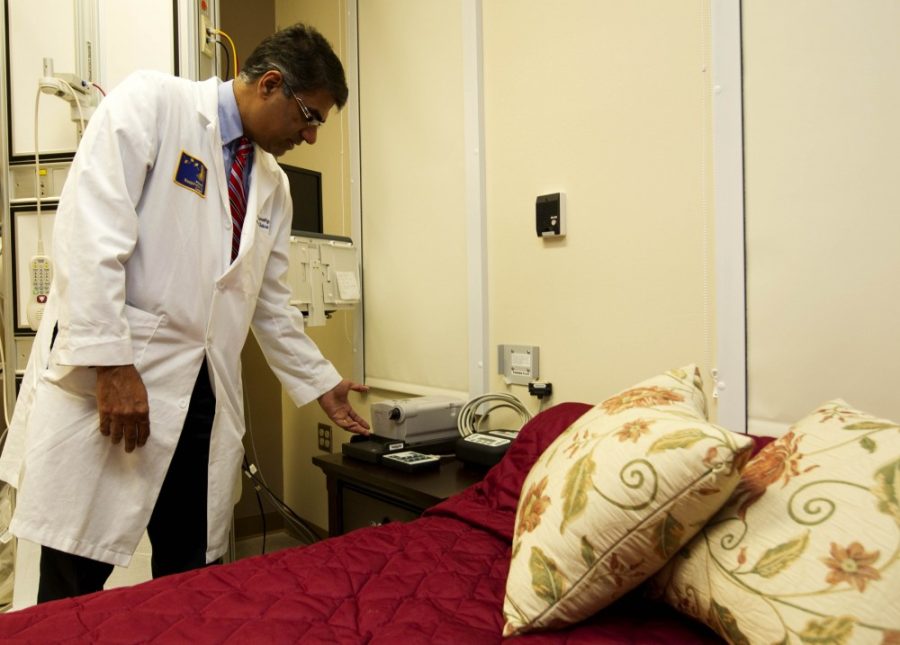Patients with sleep problems can now turn to the Center for Sleep Disorders at the University of Arizona Medical Center for treatment.
The center, which opened earlier this month, aims to diagnose and care for patients with sleep conditions, as well as educate the general public about the nature of sleep disorders, said Dr. Sairam Parthasarathy, medical director of the center and an associate professor of medicine.
Research that allows patients to engage in therapy trials is also part of the center’s mission, Parthasarathy said. The center will treat a variety of sleep problems including sleep apnea, insomnia, narcolepsy, circadian rhythm disorder, hypersomnia and restless leg syndrome.
The center mainly screens patients for sleep apnea, said Sicily La Rue, lead sleep technician and a registered polysomnographic technologist. Sleep apnea is determined by hooking the patient to electrodes to monitor their pulse oximetry that tracks the oxygen level, a nasal cannula and belts around their chest, stomach and legs, La Rue said.
One way to test for sleep apnea is through a polysomnography diagnostic test performed on the patient overnight. The test monitors the brain waves, muscle tension, eye movement, respiration and audio monitoring for snoring behavior, La Rue said. This data is then used to see what exactly the patient is experiencing, Parthasarathy added.
Sleep deprivation can result in serious illness, such as diabetes, depression and may also be associated with cancer, Parthasarathy said.
The amount of sleep that a person should receive depends directly on the individual, and as the human body grows, our strength grows with us and our sleeping needs decline, according to Parthasarathy. This is a result of nature’s system and developmental growth.
Once a patient is diagnosed with sleep apnea, they receive treatment through a continuous positive airway pressure. This treatment uses mild air pressure to keep the airways open, La Rue said. The center can treat two patients a night, one at 8:30 p.m. and another at 9:30 p.m., Parthasarathy said.
Part of the center’s research will further educate doctors and specialists like psychologists, psychiatrists, epidemiologists, neurologists and surgeons who are also interested in studying sleep disorders. Each of the specialist arenas play a role in the treatment of the patient’s disorder. Parthasarathy said if the center can get members from each specialist program and involve them within the medical care center, this would be the first center in Arizona to have a group of distinct doctors and specialists working together to treat patients with sleep disorders. This would further research, increase the ability to educate others and care for patients, Parthasarathy said, as well as have the potential to refer patients to specialists within the same group.
“We are interested in knowing that everyone is receiving the appropriate adequate amount of sleep, so they are not sleep deprived in the morning,” Parthasarathy said.
Parthasarathy said doctors in the center will continue to find new treatments and new discoveries, because sleep apnea or breathing problems during sleep are the most common sleep conditions. From an educational standpoint, the center wants to set up a fellowship program where doctors can receive training to specialize in the field, Parthasarathy added.
“I see the center expanding, we are only a two-bed lab now and I see it expanding to a four-bed lab,” La Rue said. “Sleep is part of our whole entire lives and physicians have the capability to expand our knowledge about sleep.”









